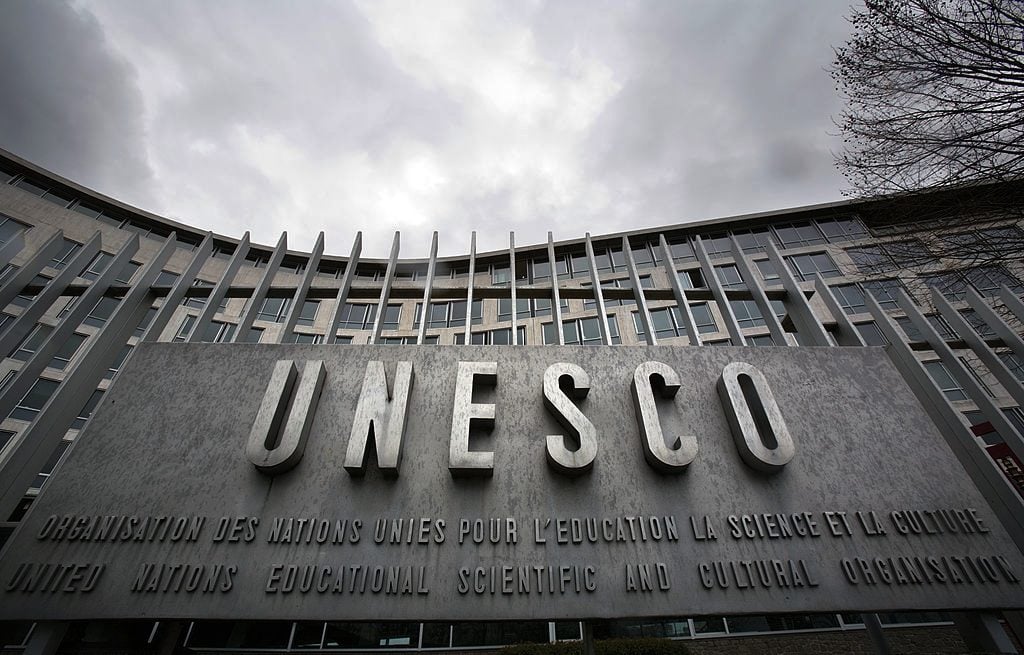Politics
US Government Withdraws From UNESCO, With Profound Implications for Cultural Institutions
The Trump administration cited "anti-Israel bias" as a primary reason for its decision to withdraw from the organization the US helped found.

The Trump administration cited "anti-Israel bias" as a primary reason for its decision to withdraw from the organization the US helped found.

Julia Halperin

The United States government has withdrawn from UNESCO, the UN agency that promotes international education, scientific and cultural reforms, as well as world heritage preservation. The US State Department cited the organization’s “anti-Israel bias,” as well as the high cost of participation, as the primary reasons for its decision. The move was rumored yesterday and formally announced this morning.
The withdrawal will be official on December 31, 2018, and the US will remain a member of UNESCO until then. From 2019 onward, the US intends to participate as an observer, according to the US Department of State.
News of the decision comes at a moment of transition for UNESCO. The organization is expected to select a new director general this week.
“This decision was not taken lightly, and reflects US concerns with mounting arrears at UNESCO, the need for fundamental reform in the organization, and continuing anti-Israel bias at UNESCO,” Heather Nauert, a spokesperson for the State Department, said in a statement. The US has expressed a desire to “remain engaged” with the organization in order to “contribute US views, perspectives and expertise.”
UNESCO’s work has far-reaching implications for the cultural world. In addition to designating World Heritage sites, the organization’s 1970 Convention was the first international instrument dedicated to the fight against illicit trafficking of cultural property. It stated that an institution could not acquire, loan, or borrow any ancient object that had been exported from its country of origin after 1970. Many restitution cases that have successfully forced the return of looted antiquities from US museums have hinged on this 1970 treaty.
Irina Bokova, the outgoing director general of UNESCO, said in a statement that she felt “profound regret” at the US’s decision. “This is a loss for multilateralism,” she said. “At the time when conflicts continue to tear apart societies across the world, it is deeply regrettable for the United States to withdraw from the United Nations agency promoting education for peace and protecting culture under attack.”
This isn’t the first time the US has pulled out of the very agency it helped found in 1945 to encourage the exchange of ideas after World War II. As Foreign Policy points out, the Reagan administration left UNESCO in 1984 at the height of the Cold War due to what it perceived as a bias toward the Soviet Union. The Bush administration returned to the fold in 2002.
Nevertheless, the relationship between the US and UNESCO was strained even during the Obama administration. In 2011, the US cut $80 million in funding to the organization after it accepted Palestine as a member. (The US’s contribution accounted for 22 percent of UNESCO’s total budget.) Obama later sought unsuccessfully to restore funding, and the US lost its voting rights in UNESCO’s central decision-making committee, the General Conference, in 2013.
Tensions with between the organization and the Trump administration escalated in July, when UNESCO designated the old city in Hebron as a Palestinian World Heritage Site, a controversial move that Israel claimed negated the town’s Jewish history.
Because the US remains a member of UNESCO’s executive board until its withdrawal is official next year, however, it is still expected to vote on a new director general this week.
UPDATE, October 12, 2:15 pm: Israel has announced that it also plans to withdraw from UNESCO, according to the AP. In a statement, Israel’s Prime Minister Benjamin Netanyahu said that UNESCO had become a “theater of the absurd because instead of preserving history, it distorts it.” He called the US’s decision “brave and moral.”